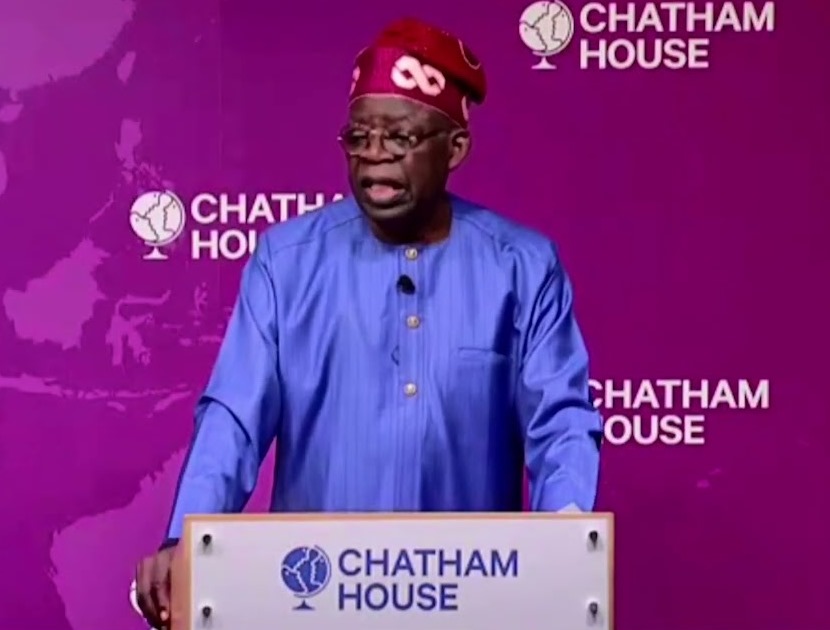By Adagbo Onoja
The level of mental, institutional, infrastructural and social decay in Nigeria is of an emergency proportion. So much so that any person of goodwill must join in putting concrete suggestions on the table. Unfortunately, the business of putting concrete suggestions on the table in Nigeria can be dangerous because nothing in Nigeria is assessed outside of the Cartesian bullshit of good versus bad. Perhaps, it is not only in Nigeria but Nigeria is one sure place where no recognizable efforts are on to checkmate the consequences of the Cartesian line of looking at reality. So, people are dying or are being killed in justification or defence of the ‘good’ against the ‘bad’ across Nigeria, becoming the ‘we/they’ binary in ethnic, regional or religious dimensions of it. With the collapse of the universities as the only way to create a critical mass of people who have transcended that binary reasoning, there is the danger it could get worse. In other words, the deliberate destruction of the universities by destroying the principle of merit in the recruitment of university teachers, vandalisation of the autonomy of universities in the deeper sense of that word and by deliberately impoverishing academics, is proving very costly to national interest. Universities do not just exist to award certificates and give the Visitor opportunity to wear academic gown at the Convocation. But, even as dangerous as it is to join in offering suggestions, Nigeria is too important to be left to chance and the duty of drawing attention to defining and/or emerging features of the social order must be attended to, if for nothing else, then for posterity. We give immense thanks to God that nobody can say that some of us write because are in need of an appointment or contract or some form of patronage, none of which one is available for at the moment as for this to be sycophancy.

IBB did penetrate the society but without transcending the praetorian mentality as to have been really powerful
In this regard, there can be nothing more important than attention to the acquisition, consolidation and deployment of power in a pre-industrial polity as Nigeria. This is because power is the ultimate variable in what counts as reality. We started this engagement with power in the context of the impending Asiwaju presidency by contending that his becoming is a product of constructivist simulation rather than power gained through his location in the structural, institutional or coercive infrastructures. The structural, institutional or coercive infrastructures were deployed to realize the Asiwaju power gaze. The second ‘installment’ located the Asiwaju imaginaire in the Lagos catchment of the Nigerian political economy. In this segment, the attention is on why Nigeria is waiting for its most powerful president ever in the Asiwaju Tinubu presidency, a claim which inherently raises the question of what the unprecedented degree of power might be used for and at whose behest.
The relationality of power which makes each and every one of us more powerful than we ever imagine makes it a bit ridiculous to suggest that any individual could be more powerful than necessary. The best example used to illustrate the relative equity of power is that of the prisoner – the best image of the completely powerless individual, especially those of them in handcuff or leg chains. But even a chained prisoner can still be powerful. He or she could decide to take own life. Those in handcuff can embark on a hunger strike. If they should die from that hunger strike, they would have deprived state power of the pleasure of taking its pound of flesh. It is to stop that which makes state power jitter whenever a prisoner embarks on a hunger strike. The jitter is not about concern for the prisoner, no matter the number of ethically minded people in a government. It is because a hunger strike is a test of strength between state power and an individual, a contest in which the state insists on winning, sometimes by force feeding the prisoner.
The foregone is why it is argued that power is relational rather than something held up there by the ‘oga at the top’. Men in the rural setting appear to understand the relationality of power better than most others. It manifests in the folk saying that a man who pleads with his wife to have sex with her is not suffering from cowardice. He is not because the wife alone can grant that without the experience transforming into a rape charge against him. The statement speaks to the relationality of power at that level.
But resistance to unequal power relations can be costly too. A hungry man whose sense of dignity compels him to reject an offer of food from someone he considers it beneath his dignity to accept food from is paying a huge price for resisting power imbalance between him and the food owner. This is the case across the world. It is worse in a typical African country where the typical postcolonial elite entertain no checks on brutal form of power in humiliating the relatively powerless.
There are no signs that Nigeria’s in-coming president may not follow the footsteps of his forbearers in terms of relying on coercive instruments of power. One is, however, arguing that Asiwaju Tinubu would still emerge the most powerful president of Nigeria ever even without resorting to coercion. Now, this is how it will play out.

Would Asiwaju’s phenomenal diffusion into the society be used in a transformative way?
Asiwaju is a publisher or, better still, a media mogul and, by implication, a friend of journalists. Every editor may not be inclined to give his activities a front page treatment but there are Asiwaju editors and journalists in this country. This does not flow necessarily from transactional dynamics but simply from the Tinubu variable in Nigerian politics. Nothing highlights this variable more than that, for 24 years, he alone has been, directly and indirectly, in charge of Nigeria’s most complex state – Laos. It has nothing to do with whether it is a good or bad thing that this has been the case but simply what has been. That is if we discount that he also, singlehandedly, literarily installed the president and the Vice-president of Nigeria at one go. Again, it is beyond being a matter of whether this is good or bad but the case of what has happened.
Let’s go to academia – the space which controls ideas, theories and concepts and is usually the core agenda setting force in societies where you have strong academic culture. With over half a dozen professors providing intellectual maps to the Asiwaju power machine, the in-coming president has a never – before link to that very strategic space. IBB did have tough professors but there is a difference here. IBB’s professors were recruited to advance and defend a power agenda they did not craft. Asiwaju’s professors are going to be advancing, implementing and defending a power agenda they are not strangers to and, therefore, have a stake in its success. The second dimension of this is that these professors have their own independent links to academia – friends, colleagues, former students and so on. Third dimension is that these are people who have not been resource starved and are not about to.
The same thing will apply to the radical establishment. In fact, the fear now is that the coming of Asiwaju Tinubu will be the temporary evaporation of Left politics in Nigeria. The situation could develop to where he even becomes the organizer of the rehabilitation of the Left. Many Leftists in Nigeria are, at heart, Asiwaju Leftists. The most prominent Left element who gets into that government will become a rallying point to the detriment of the old Left.
In the Judiciary, there are Tinubu judges in this country. Again, this does not strictly flow from transactional dynamics but even more from the Tinubu variable explained earlier when we touched on the Asiwaju-media nexus.
The civil society is not different. As a NADECO activist, who in the civil society will successfully contest his claim to membership should he surface at a civil society forum to say he is not there as President Tinubu but as a floor member? And who can calculate the leverage such a stunt will give him as a sitting president?
So, which aspect of the larger society has he not have penetrated? Business? Religion? Of course, he has contravened the spirit of the Constitution by not selecting a Christian to be his pair in deference to the realism of, first, winning the crown. But, in doing that, he opens himself to the negotiating strategy of the Nigerian Christian community in terms of compensatory politics. If the Christians are smart and asserts themselves in terms of a qualitative rather than a quantitative Christian candidate for certain offices, they could still win by ‘losing’ the Vee-pee slot. In other words, nothing has happened fundamentally to Asiwaju’s diffusion in the religious component of the society, in both its Christian and Muslim spectra.
Whether a president so diffused as this would still need coercive power is what remains to be seen. But, why would he deploy policemen or troops to suppress a labour protest when, like a former Vice-Chancellor of the University of Jos, he can undercut the protest by joining the protesters as much as presidential security allows?
In the context of the scenario sketched above, the question is what might such a tremendous amount of power be deployed to serve? At the ethical level, it should act as a conditioning influence on Asiwaju’s sense of mission – whatever that mission is – to raise the stakes. Democracy in itself will not take Nigeria to the promised land. Nigeria is never going to be an exception to the rule that a pre-industrial polity like Nigeria needs someone who can mobilise the citizenry towards somewhere. Pre-industrial citizenry is weak against a powerful state machinery like Nigeria. The civil society, the business sector, the academia and whatever sectors you have in such a polity are also relatively weak. The endless talk about an autonomous private sector engineering economic take-off is both a demonstration of historical ignorance and collective elite escapism. If only Asiwaju can sit down and reverse the nonsense, he would have, in spite of everything, overwritten the Cartesian bullshit of the good and bad candidate. This is more so if he manifests the sense of urgency in the response of government to the hopelessness of the Nigerian situation today whereby, any and every one can either be kidnapped, shot dead or be going without a meal for days. And a merit sense has completely disappeared and no one is ever sure if there is tomorrow.
It is great that the president-elect has taken the position against a Government of National Unity. A Buhari presidency so fearful of being overthrown the second time fell back on kith and kin in peopling government, thereby permanently making the case for a Government of National Unity valid. Once the president –elect doesn’t suffer from such baggage and every section is seen to be represented, the case for a GNU vanishes. The enormity of the crisis today calls for a lean government rather than one constrained by an over-load of do – nothing officials.
At the larger social level, the question is that of what the challenges are or what are to be done if the coming president of Nigeria has, in addition to the coercive instruments of power, the power that flows from his own diffusion into various spaces of the society? This is not something Nigeria has experienced before and there is need for reflection on it.




























